|
Stainless steel and corrugated galvanized steel tanks are the preferred choice to store rainwater for residential and commercial potable and non-potable uses, irrigation and fire protection. They are available in various sizes and capacities ranging from 1,000 to 150,000 gallons. Tanks larger than 5000 gallons capacity are structurally engineered to contain the volume and weight of water and offer resistance to wind, seismic and snow loads as mandated by the UB Code. |
|
METAL TANKS
|
|
Products — Tanks & Storage Units |
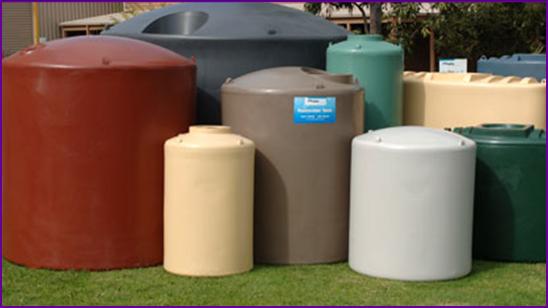
|
As you can see, polyethylene UV stabilized tanks come in a variety of and styles and sizes — from 45 gallons to 10,000+ gallons. Tanks also vary by purpose—i.e., potable and nonpotable. Choosing the right tank for you depends on a variety of factors including location, space available, landscape, end-use, and good old personal taste. Any tank size is available, but standard sizes offer the best deals. can be found, sizing is always available as well. |
|
POLY TANKS
|
|
Cisterns can be placed above or below ground, outdoors or within buildings. Cisterns are fabricated from non-reactive materials such as reinforced concrete and galvanized steel, but most are made of polyethylene, which is unaffected by soil chemicals and will not rust, corrode or require additional coatings. Most cisterns are available in a variety of sizes and styles, both for potable and nonpotable water storage and offer a unique way to store rainwater. |
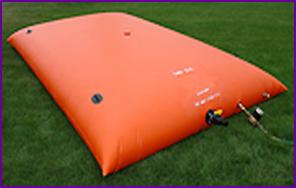

|
The key to rainwater catchment lies in the storage of the harvested water. Your choice of storage units depends on a variety of factors including your space availability, ¨ Polyethylene tanks are probably the most popular. They come in a multitude of sizes and offer potable and non-potable tanks for water storage. ¨ Metal tanks, easily the top-shelf tanks of choice, are primarily manufactured of stainless steel and corrugated galvanized steel tanks and are very cost-effective for large storage. ¨ Wood Tanks are the top-of-the-line option for water enthusiasts. Locally made redwood and oak tanks are easily worth the extra investment. ¨ Pillow tanks are excellent for fitting under the crawl space or deck in residences with limited space availability. ¨ Below ground cisterns are another alternative using galvanized steel, or polyethylene to offer versatility and innovative below ground storage capacity. ¨ Man-made ponds are an inexpensive alternative for storing water, but there is an issue with evaporation that must be dealt with. It’s also imperative to figure out how much rainwater you conceivably have available to make sure you choose the size that works for you based on your needs and climate. To calculate this amount, look up the average number of inches of annual rainfall in your area and then multiply it by 620 gallons per 1000 sq ft of roof. Bottom line, water storage is the main component of a rainwater catchment system and AP Rainwater Harvesting & Graywater Gardens is dedicated to helping our clients find the right storage unit for your system. |
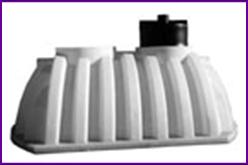
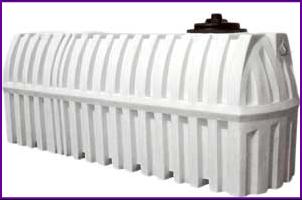
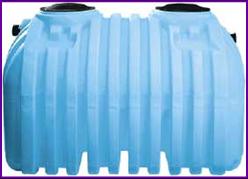
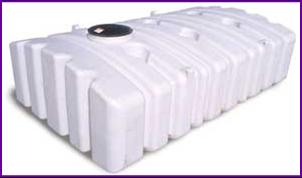
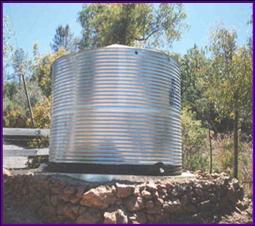

|
CHOOSING THE RIGHT STORAGE UNIT FOR YOU
|
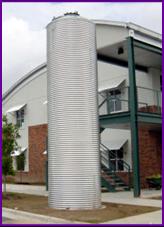
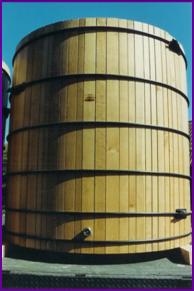
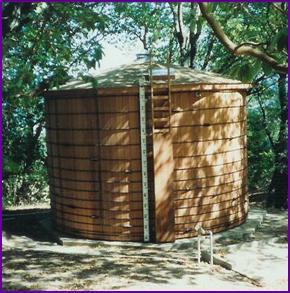
|
WOOD TANKS
|
|
Wood tanks are the top-of-the-line option for water enthusiasts. Centuries old, these days wood tanks are hand-made, decoratively desirable and come in any size. You also get to choose the wood—redwood and oak are the local favorites. Wood water tanks are designed to serve a minimum of 35 years for 2" tanks and 55 years for 3" tanks and require minimal maintenance. Shrinkage and leakage can be minimized by maintaining a certain water level during hot and/or windy weather and applying boiled linseed oil every two years to all exposed exterior surfaces. |
|
RAINBARRELS AND DECORATIVE CISTERNS
|
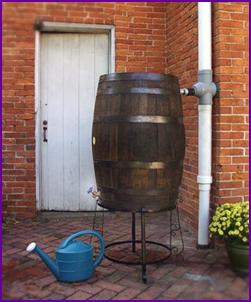
|
The Aquadra System is a modular rainwater collection tank is designed to keep a low profile. The mounting kit enables the user to bolt and secure the tank to the side of the house, fence or inside the garage with only two securing bolts and it will securely withstand any weather condition. |
|
MODULAR UNITS
|
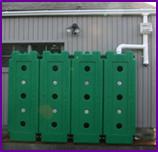
|
Rainwater Hogs are a novel solution to the problem of rainwater or graywater storage in areas where space is at a premium. The Rainwater HOG’s relative small size enables it to fit into many spaced previously not available to water tanks, while its modular design enables it to be extended and capacity increased bit by bit and in multiple locations around your house and property. The Rainwater HOG’s narrow profile makes it the perfect water storage solution along side walls, down narrow passages and underneath decks and house structures. Being able to sit flat, on its side or stand upright on its end the Rainwater HOG is adaptable to almost any situation.
|
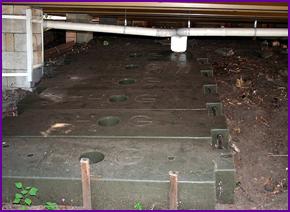
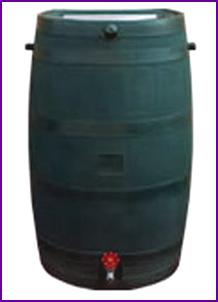
|
Pillow Tanks offer an effective and economical alternative to traditional poly tanks. Designed to be installed in a crawl space or under a deck or porch, pillow tanks are usually made of a reinforced polymer alloy and come in both potable and nonpotable styles. |
|
Wood tanks are the top-of-the-line option for water enthusiasts. Centuries old, these days wood tanks are hand-made, decoratively desirable and come in any size. You also get to choose the wood—redwood and oak are the local favorites. Wood water tanks are designed to serve a minimum of 35 years for 2" tanks and 55 years for 3" tanks and require minimal maintenance. Shrinkage and leakage can be minimized by maintaining a certain water level during hot and/or windy weather and applying boiled linseed oil every two years to all exposed exterior surfaces. |
|
CISTERNS
|
|
PILLOW TANKS
|

|
Rainwater Filters |
|
Rainwater Products |
|
Storage Tanks |
|
Graywater Products |
|
Ap Rainwater Harvesting & Graywater GARDEns |
|
Providing Innovative Green Solutions For All Your Water Needs |
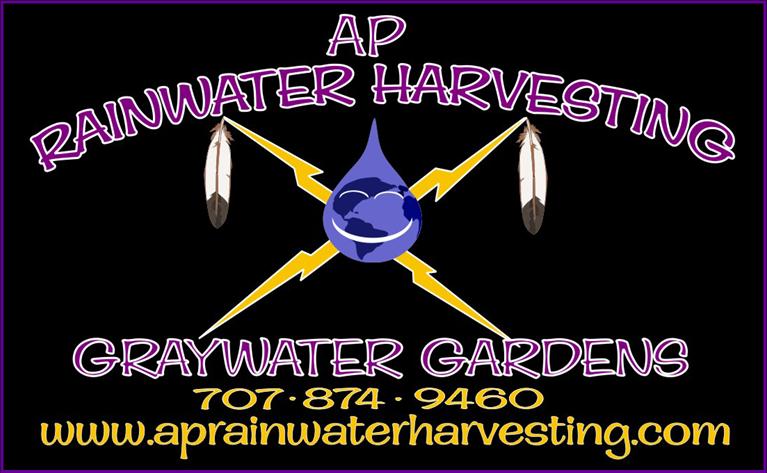
|
WATER STORAGE IS AN ESSENTIAL PART OF SURVIVAL IN THE 21st CENTURY “By 2025 at least 3.5 billion people—about half the world's population—will live in areas without enough water for agriculture, industry, and human needs... Worldwide, water quality conditions appear to have degraded in almost all regions with intensive agriculture and in large urban and industrial areas.” |